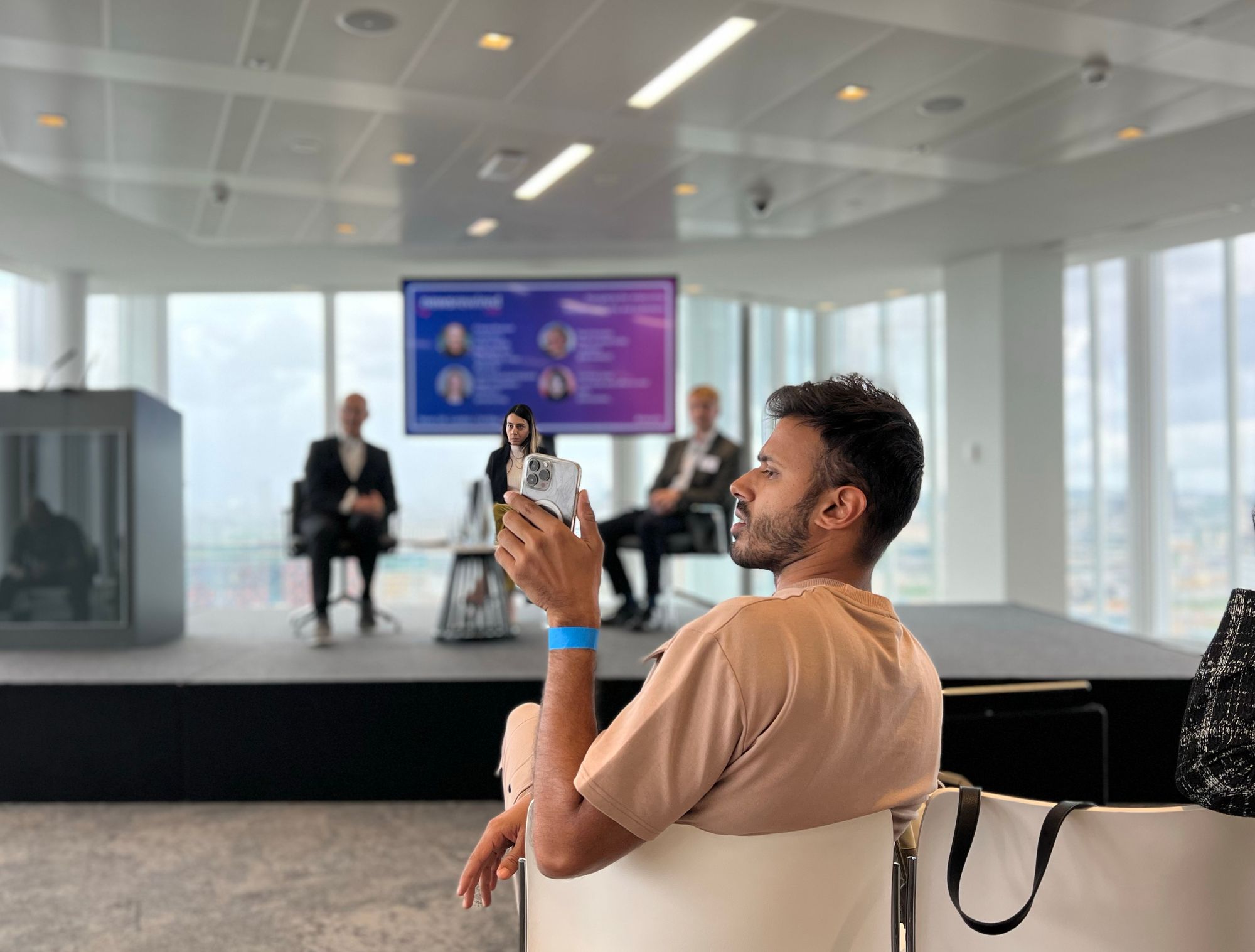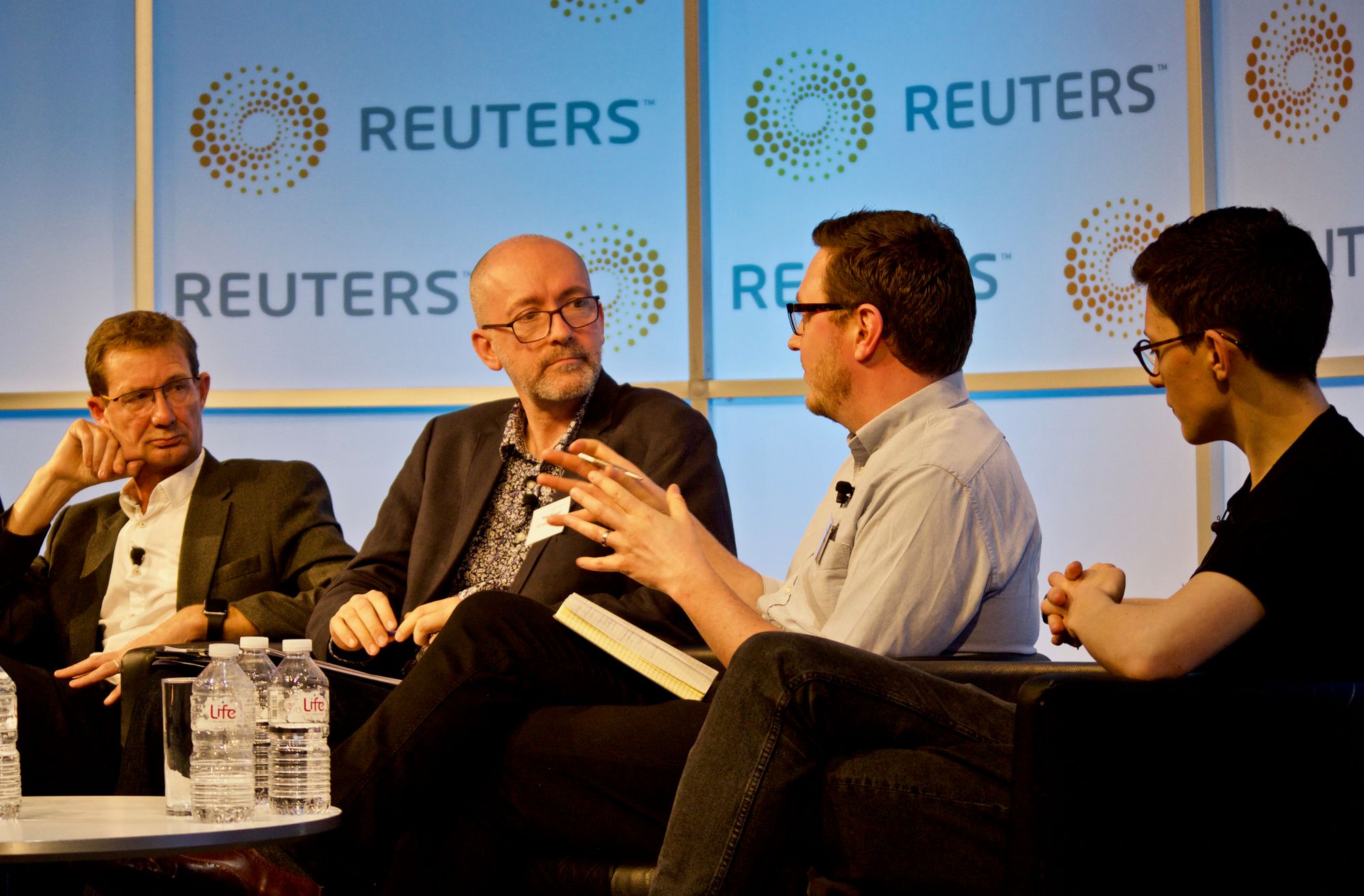
News on Smart Speakers: are voice interfaces viable for journalism?
Are smart speakers the next frontier for journalism - and is there any money to be made there? A panel of speakers at the March 2018 news:rewired explored the potential — and the challenges.
Are smart speakers the next frontier for journalism - and is there any money to be made there? A panel of speakers at the March 2018 news:rewired explored the potential — and the challenges.
Panel
- Nic Newman, senior research associate, Reuters Institute for the Study of Journalism
- Peter Stewart, journalist and author
- Susie Coleman, software developer, Guardian Voice Labs
- Chris Stone, video executive producer, London Evening Standard
- Suchandrika Chakrabarti, founder, Freelance Pod, moderating
Nic Newman
Reuters Institute for the Study of Journalism
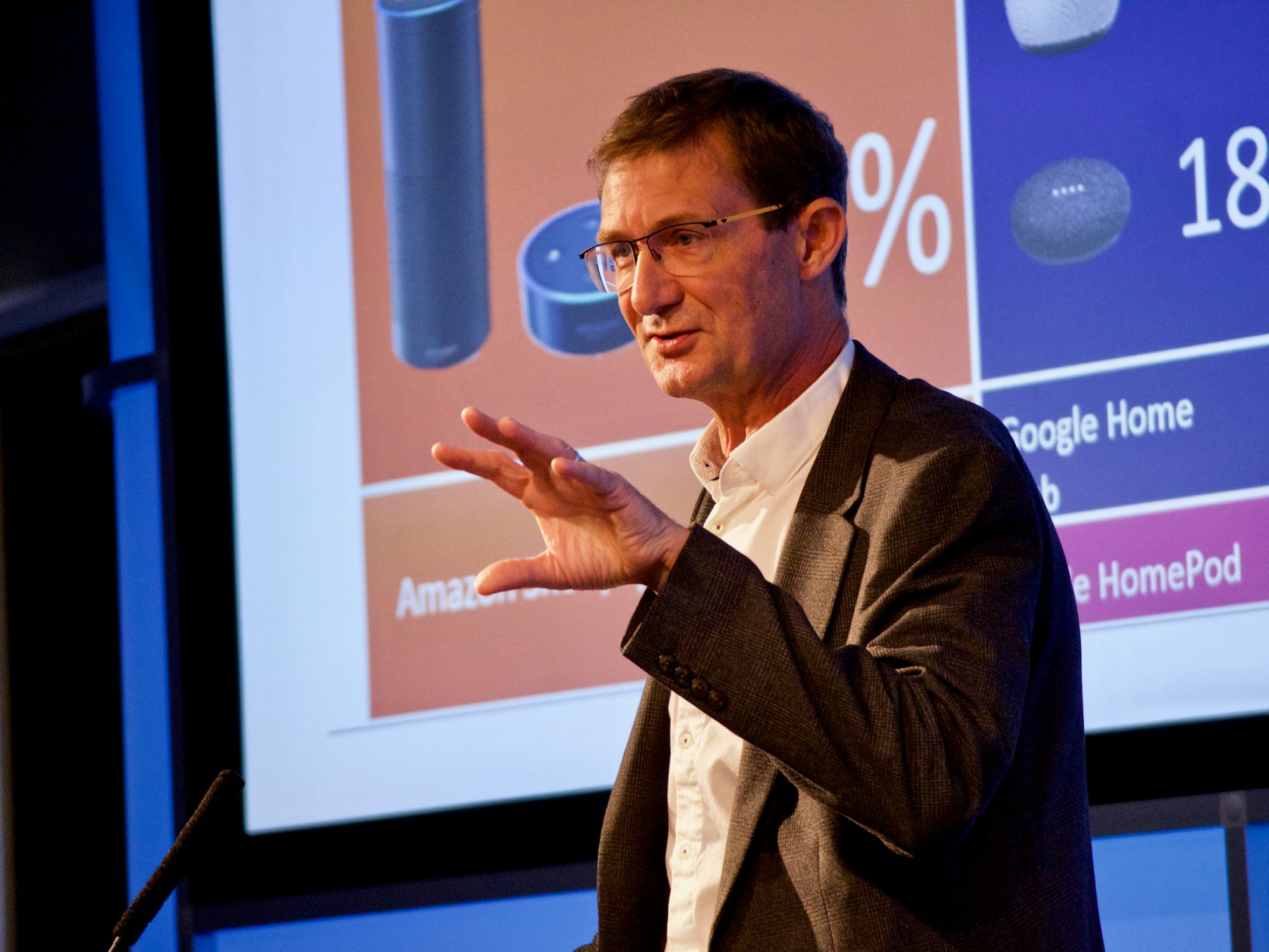
Smart speakers are growing faster than mobile phones did in the same stage of their evolution. In the UK Amazon is dominant - but in Australia it's Google. It varies around the world, often based on who entered that market first.
.@nicnewman Market share - UK Amazon 74%, Google home, mini 18% #newsrw #journbiz
— John Thompson (@johncthompson) March 6, 2019
But people are using them in very simple ways - very command and control: turn on lights, turn on music. They rarely use it for news - only 1% say it's the most important feature. Less than 1/5 of the audience are using flash briefings daily - and podcasts aren't doing well, either. People seem to prefer them as a more intimate experience, with headphones.
Most people aren't yet using smart speakers (and smartscreens, headphones, car assistants etc) @nicnewman tells #newsrw, partly because they can get audio news elsewhere (including RADIO) and partly because tone & style of dedicated SS content isn't there yet. pic.twitter.com/qtvgqxN1cx
— 𝐂𝐨𝐫𝐢𝐧𝐧𝐞 𝐏𝐨𝐝𝐠𝐞𝐫📱🎓 (@corinne_podger) March 6, 2019
Speaking on #smartspeakers, @nicnewman says "people haven’t gotten the content and tone right for #news flash briefings yet,” adding that podcasts are not doing as well as maybe thought; "most people use their headphones for that.” Lots of industry tweaking needed, then. #newsrw
— Bella Qvist (@bellaqvist) March 6, 2019
But it's not just about smart speakers - it's about voice interfaces. It's that that is likely to be really disruptive. Voice is spreading to screen-based devices, headphones, cars and is already on your phone. This is only going to grow.
Nic wrote a report into smart speakers last year. I shared my analysis of it.
Peter Stewart
Journalist & author
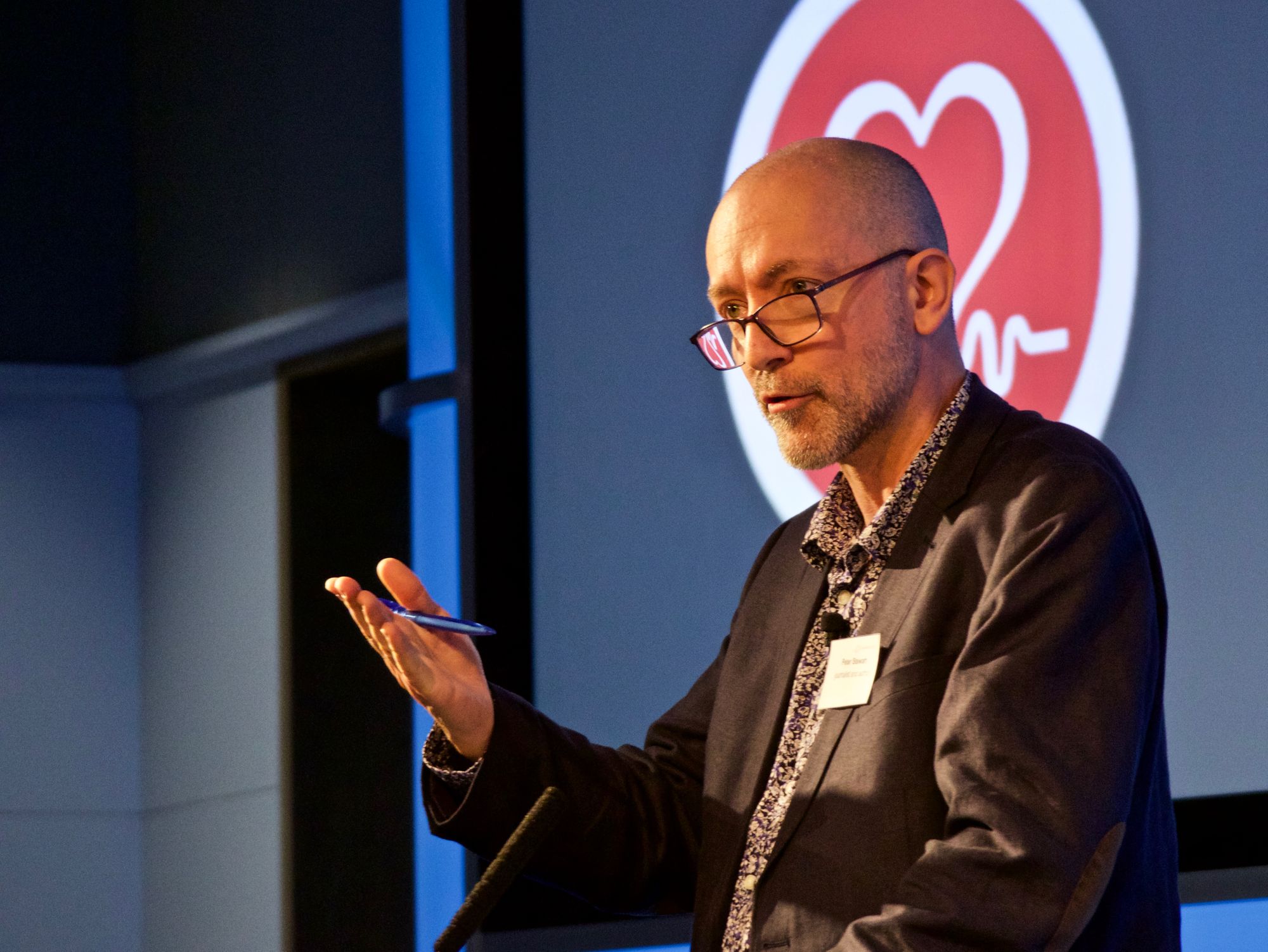
There are some routes to making money on speech - in-skill sales, for example.
.@tweeterstewart [Ways to make money with Amazon smartspeakers] In-skill purchasing - sell access to premium features (Amazon takes 30% commission!) #newsrw #journbiz
— John Thompson (@johncthompson) March 6, 2019
Amazon offers developer rewards for the most engaging skills - but you might bet £1000 or you might get a sweatshirt. Amazon also has a prize for people who have good ideas for research new uses.
You can run adverts in your podcasts, flash briefings or streams.
You can use Echo for promotions and marketing. You can raise awareness, or improve an experience. The FT use it to enhance a weekend city profile. The NYT allows you hear and order media they're reviewing.
There are two boardgames that only work with Alexa. And subscription audio is coming soon.
If you want to tune in to @TweeterStewart's podcasts - go twice-monthly https://t.co/mgumz45d8D, or get a daily briefing https://t.co/wPLhoaftBu #newsrw pic.twitter.com/dKdx8k8v1u
— 𝐂𝐨𝐫𝐢𝐧𝐧𝐞 𝐏𝐨𝐝𝐠𝐞𝐫📱🎓 (@corinne_podger) March 6, 2019
Chris Stone
Evening Standard

The Evening Standard had an events-based skill which has been discontinued. It does have a flash briefing on both Amazon and Google's platform.
Google are developing a new version of the news experience, creating a personalised feed of sub-60 second single-topic stories, from different outlets. It's potentially a much better user experience - but with serious disadvantages for publishers. You're ceding control to the platforms, with consequent costs for discoverability and loyalty.
The Evening Standard is working with Google, producing a mix of content that will be part of the experiment.
.@christonetv Evening Standard, for its partnership with Google, will produce 20-30 daily single topic stories, experiment with longer form explainer content, and podcasts #newsrw #journbiz
— John Thompson (@johncthompson) March 6, 2019
They're running small and lean, but with a multi-disciplinary group. Audio is expensive - but it's cheaper than video! But there's lots of work to do. What should the Evening Standard sound like, for example?
This is really the beginning of a new dimension of the internet - the nascent audio web.
We're on the cusp of a nascent audio web - "we don't even have a term for it yet" - enabling outlets to offer a suite of content that can be introduced to audiences throughout their day on a range of different devices - says @ChrisStoneTV at #newsrw
— 𝐂𝐨𝐫𝐢𝐧𝐧𝐞 𝐏𝐨𝐝𝐠𝐞𝐫📱🎓 (@corinne_podger) March 6, 2019
Susie Coleman
Guardian Voice Lab

The team is prototyping meaningful voice-first content experiences, to allow The Guardian to develop a strategy. The Year in Review was a gamified audio experience - that allowed you to discover The Guardian podcasts.
They get a lot of data from this experiment - but it's difficult to process meaningfully. Discovery is challenging. And building on a new platform is hard work - it keeps changing around you.
Next time, they wanted shorter, more habitual interactions. They want to launch sooner and iterate - and make use of existing Guardian content.
That led to Guardian Briefing. They're using synthetic voices to read the content, and machine learning to help determine how the slots are filled.
"A human voice is nicer to listen to than a synthetic one, especially when it is a longer piece," says @susieC20, of @guardian Voice Labs, but adds the tech knits the synthetic voice together with a human, adding richness to tone and speed etc. #newsrw
— Bella Qvist (@bellaqvist) March 6, 2019
We just announced the launch of @guardian Voice Lab's new experiment, The Guardian Briefing. The Briefing combines human rich audio with synthesised voice - 'the news you need, when you want it'. Say "Hey Google, Talk to Guardian Briefing". https://t.co/Cy9ndLsZfV#newsrw #voice pic.twitter.com/XRlrKKpASS
— Dave O'Donnell (@cushtilla) March 6, 2019
Q&A

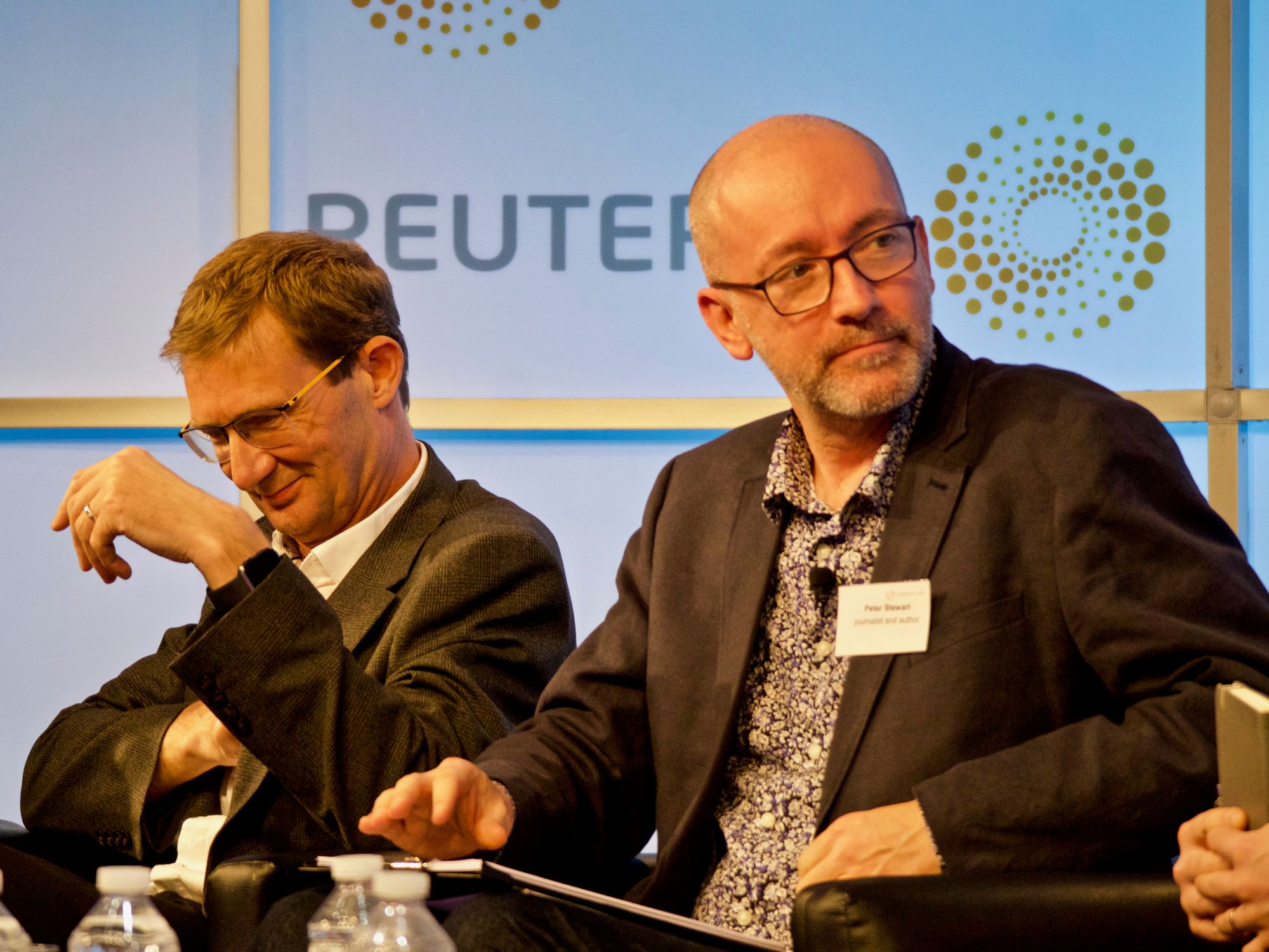
Q. What's holding publishers back from innovating?
Chris: If you're not a broadcaster - content creation. There's a lack of existing audio capacity. Many publishers can't afford to do it without an immediate return. However, audio production is cheap compared to video.
Susie: A human voice is nicer to listen to than a synthetic voice. The technology is getting better, as are the voices. It's terrifying how good the voices are getting. There will always be problems - differentiating 90210 and 90,201 when an actor dies, for example…
Peter: Publishers have been bitten before. Look at video three years ago. There's also a huge discovery problem. It's very difficult to find skills. And even after you find one, there's no reminder that you used it - or what it's called, or how to invoke it.
Nic: My bugbear is data - the platforms have been very secretive about what's going on. And getting data on your own product is hard.
What is holding publishers back from innovating on smart speakers?
— Evangéline (@edebourgoing) March 6, 2019
- Lack of capacity for audio production
- Discoverability
- Lack of good analytics
- Tech challenges
Insights from #newsrw
Q. How can you promote your audio and increase discovery?
Peter: Podcasts are quite hard - you need to invoke the podcast platform and then the actual podcast. Discoverability is hard: getting people to use the app is not easy. It's five or six taps to find a flash briefing.
Chris: Obviously we have the advantage of having a newspaper and website. We have ads running on our websites and videos. We have articles in the paper. And we're getting coverage on social. Time magazine used a sticker on their Twitter page.
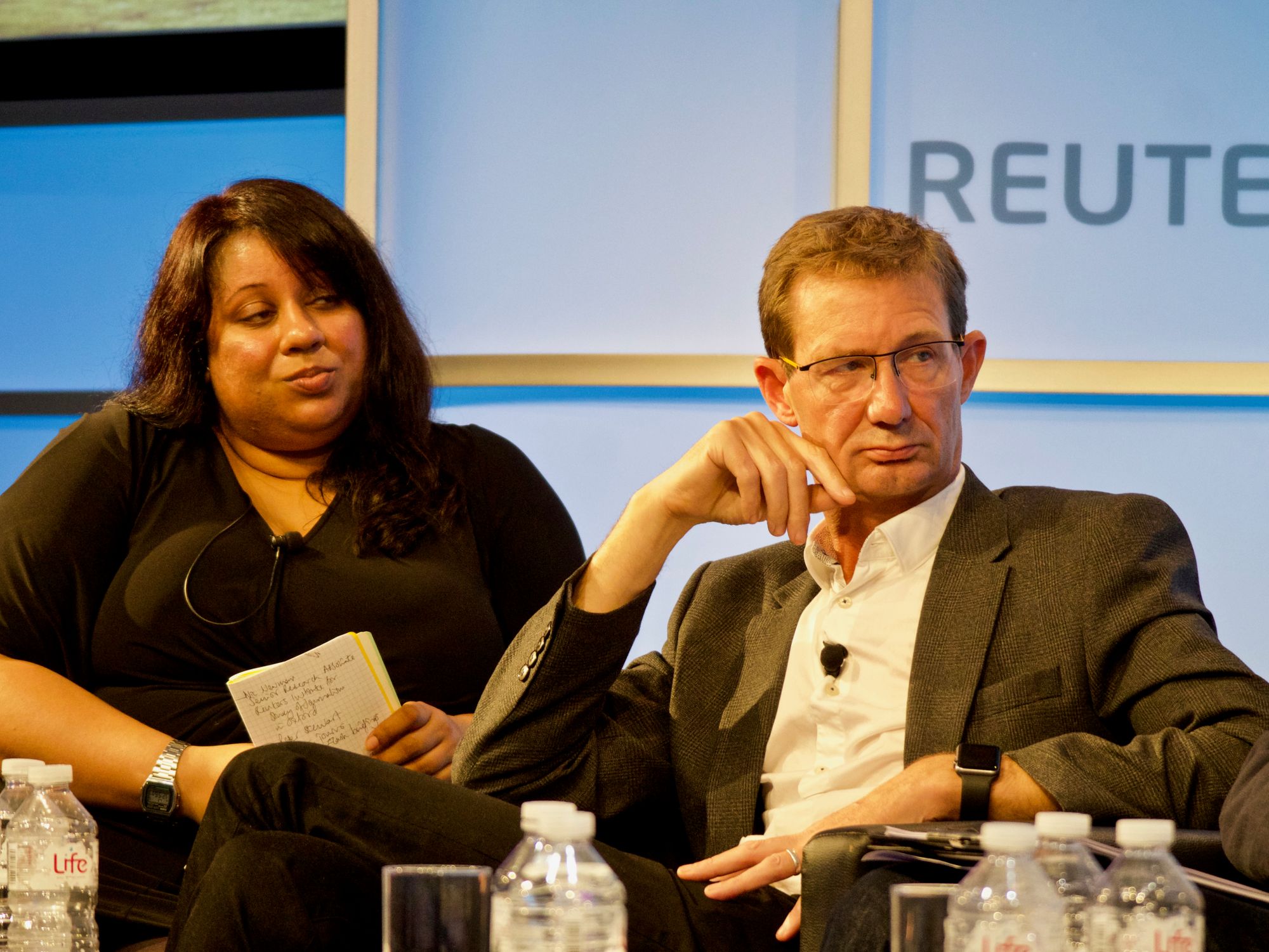
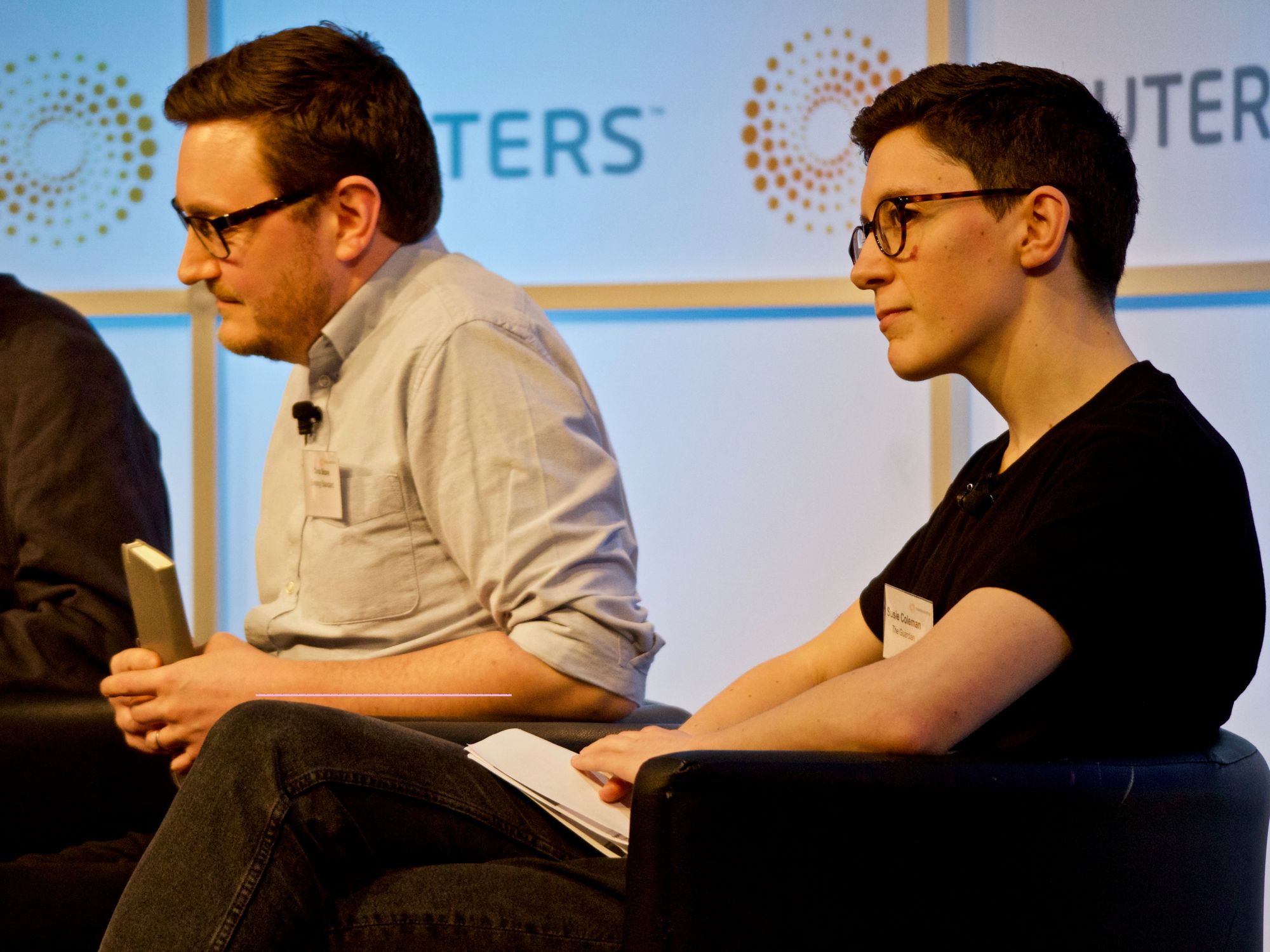
Q. To what extent is this a pull or a push process? Is it driven by the publishers or the platforms? And can audio become searchable?
Nic: It's a huge amount of push. The platforms want us to do stuff on screens, because they want to sell them, but there are few people using them.
Susie: Discovery is really, really hard. On your phone you can find it by searching the app store. On your speaker, if you get the invocation wrong, you get nothing. We need to be clear about telling people what they need to say to get the product.
Chris: Brand are exploring this space, too. That creates some opportunities for interesting relationships. Can you have a call-to-action in your flash briefing that hands off to a brand?
Peter: Google is transcribing all sorts of audio across the web. It will become more discoverable.
Elisabetta Gardini has also written up a summary of the session.
Sign up for e-mail updates
Join the newsletter to receive the latest posts in your inbox.



